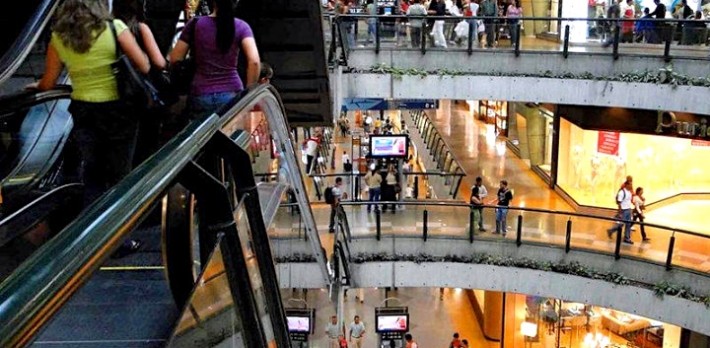
EspañolYou don’t need to read all the news coming out of Venezuela to realize the extent of the country’s economic crisis. Let me give you just two examples of news items — both taken from a single day— that stress how fast Venezuela’s economic time bomb is ticking.
First, President Nicolás Maduro’s administration decided to sell off some US$1.5 billion worth of Venezuela’s gold reserves in order to obtain some cash and meet bond obligations which expire in February. As economist and opposition lawmaker José Guerra explained, selling gold can be considered a normal operation, but not now, when Venezuela is in “desperate” circumstances.
“We maintain our good reputation with every timely bond payment,” he said, “but at the same time we are left off with less reserves to meet future obligations. Given the country’s economic stagnation, we can expect a rise in the cost of lending.”
The Maduro administration loves to disparage capitalism, US imperialism, and international organizations and lenders. But it does whatever it takes — such as ruining the country’s economic future and leaving the population without food — to keep paying foreign bondholders. This can only mean one thing: all the regime’s elite cares about is staying in power.
The second piece of news is equally appalling: the government decided to ration electricity in shopping malls, which will now enjoy power supply for only four hours a day. Contrary to what you may think, this is not a trivial measure. Venezuelans are now left with even fewer safe places for leisure and cultural activities.
In Venezuela, there aren’t enough parks that are safe and well kept. And, currently, mosquitoes are transmitting diseases like Zika, dengue, and chikungunya across the country. Therefore, Venezuelans go to shopping malls not so much to buy things — the terrible inflation and shortages often prevent them from shopping — but to relax with their families and friends and occasionally go to the movies, watch a play, or take their children to the playground.
Perhaps this situation is exactly what Maduro wants: total confrontation, a second Caracazo, or a 21st-century civil war
Venezuela as a nation is about to go dark despite the government’s claims to the contrary. Major social outbursts will explode if urgent measures are not taken to address the popular unrest, which is now dangerously contained. It’s that simple and critical.
[adrotate group=”8″]
President Maduro is refusing to adopt emergency policies. He is also unwilling to resign, therefore rejecting two possible and rational courses of action which could potentially save his political life.
But perhaps this situation is exactly what he wants: total confrontation, a second Caracazo, or a 21st-century civil war, so that others begin intervening inside and outside Venezuela. It might be the army, domestic terrorist organizations, friendly governments, or the Organization of American States. Maduro is waiting for someone to pull him back from the abyss and make him look like a victim, providing him with another excuse to blame the opposition, imperialism, the entire world, or anyone else but himself for Venezuela’s problems.
Aporrea, a Chavista propaganda outlet, recently published an article that reads:
The opposition Democratic Unity Roundtable (MUD) and its gang of traitors will seek full confrontation at any price, at any place. They can only debate issues, because we cannot call what they do a debate of ideas, because the MUD has no idea of its own. They merely have orders from the United States. The MUD and the yankees are looking for blood, chaos, and unrest among the population. They have been weaving this net with meticulous precision. They have overlooked nothing, they placed all their bets on the economic war, which has been successful to this day.
While blaming the opposition for its own shortcomings, the government remains inactive, and it’s unclear why this is so. What is clear is that the regime’s irrational or revolutionary justifications hold little sway. What matters is that, since the Maduro administration is unwilling to act, the opposition must do so. And it must do even more than it already has done.
Nobody should pose as a hero, as Venezuelan journalist and political scientist Gustavo Azócar points out.
The opposition leaders gathered around the MUD simply have to “agree on the best way to remove Nicolás Maduro from the presidency as soon as possible.” This might be done through a constitutional amendment, a recall referendum, a Constitutional Assembly, or street protests that pressure Maduro to step down.
“Waiting until June is suicide… The entire country is looking for an ‘exhaust valve,'” he says correctly.
Once again, the democratic opposition must rise to the occasion and anticipate the looming events.
 Versión Español
Versión Español












